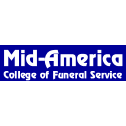What do they do?
Perform various tasks to arrange and direct individual funeral services, such as coordinating transportation of body to mortuary, interviewing family or other authorized person to arrange details, selecting pallbearers, aiding with the selection of officials for religious rites, and providing transportation for mourners.
Also known as:
Embalmer, Funeral Arrangement Director, Funeral Arranger, Funeral Counselor, Funeral Director, Funeral Family Service Assistant, Funeral Location Manager, Funeral Prearrangement Counselor, Licensed Embalmer, Licensed Funeral Director, Licensed Mortician, Mortician
-
0.7%
Change
Ranks #43 in job growth rate160Job Openings
Ranks #3 in net job growth
Looking for colleges that offer a specific major? Use the College Match Tool to find your best-matched schools and discover your estimated Net Price!
- Associate's degree (37%)
- Bachelor's degree (29%)
- Some college, no degree (17%)
- High school diploma equivalent (8%)
- Master's degree (5%)
- Doctorate or Professional Degree (3%)
- Less than high school diploma (2%)
People in this career often have these skills:
- Active Listening - Giving full attention to what other people are saying, taking time to understand the points being made, asking questions as appropriate, and not interrupting at inappropriate times.
- Social Perceptiveness - Being aware of others' reactions and understanding why they react as they do.
- Service Orientation - Actively looking for ways to help people.
- Speaking - Talking to others to convey information effectively.
- Coordination - Adjusting actions in relation to others' actions.
- Time Management - Managing one's own time and the time of others.
People in this career often know a lot about:
- Customer and Personal Service - Knowledge of principles and processes for providing customer and personal services. This includes customer needs assessment, meeting quality standards for services, and evaluation of customer satisfaction.
- English Language - Knowledge of the structure and content of the English language including the meaning and spelling of words, and rules of composition and grammar.
- Administrative - Knowledge of administrative and office procedures and systems such as word processing, managing files and records, stenography and transcription, designing forms, and workplace terminology.
- Administration and Management - Knowledge of business and management principles involved in strategic planning, resource allocation, human resources modeling, leadership technique, production methods, and coordination of people and resources.
- Psychology - Knowledge of human behavior and performance; individual differences in ability, personality, and interests; learning and motivation; psychological research methods; and the assessment and treatment of behavioral and affective disorders.
People in this career often have talent in:
- Oral Expression - The ability to communicate information and ideas in speaking so others will understand.
- Oral Comprehension - The ability to listen to and understand information and ideas presented through spoken words and sentences.
- Speech Recognition - The ability to identify and understand the speech of another person.
- Speech Clarity - The ability to speak clearly so others can understand you.
- Problem Sensitivity - The ability to tell when something is wrong or is likely to go wrong. It does not involve solving the problem, only recognizing that there is a problem.
People in this career often do these activities:
- Direct funeral or mortuary activities.
- Gather information in order to provide services to clients.
- Embalm corpses.
- Discuss service options or needs with clients.
- Transport biological or other medical materials.
- Arrange facility schedules.
- Handle caskets.
- Provide counsel, comfort, or encouragement to individuals or families.
- Maintain financial or account records.
- Order materials, supplies, or equipment.
- Provide escort or transportation.
- Arrange items for use or display.
- Clean facilities or work areas.
- Train service staff.
- Supervise service workers.
- Perform human resources activities.
- Usher patrons to seats or exits.
- Promote products, services, or programs.
This page includes data from:

 Occupation statistics: USDOL U.S. Bureau of Labor Statistics Occupational Employment Statistics
Occupation statistics: USDOL U.S. Bureau of Labor Statistics Occupational Employment Statistics
 Videos: CareerOneStop, USDOL/ETA and the Minnesota Department of Employment & Economic Development
Videos: CareerOneStop, USDOL/ETA and the Minnesota Department of Employment & Economic Development




















